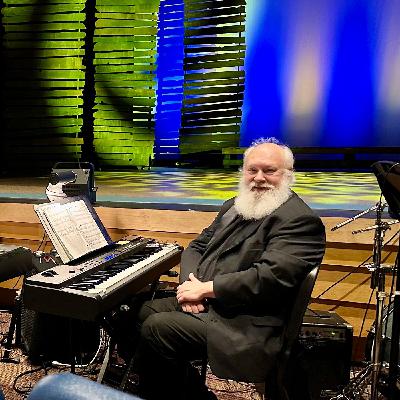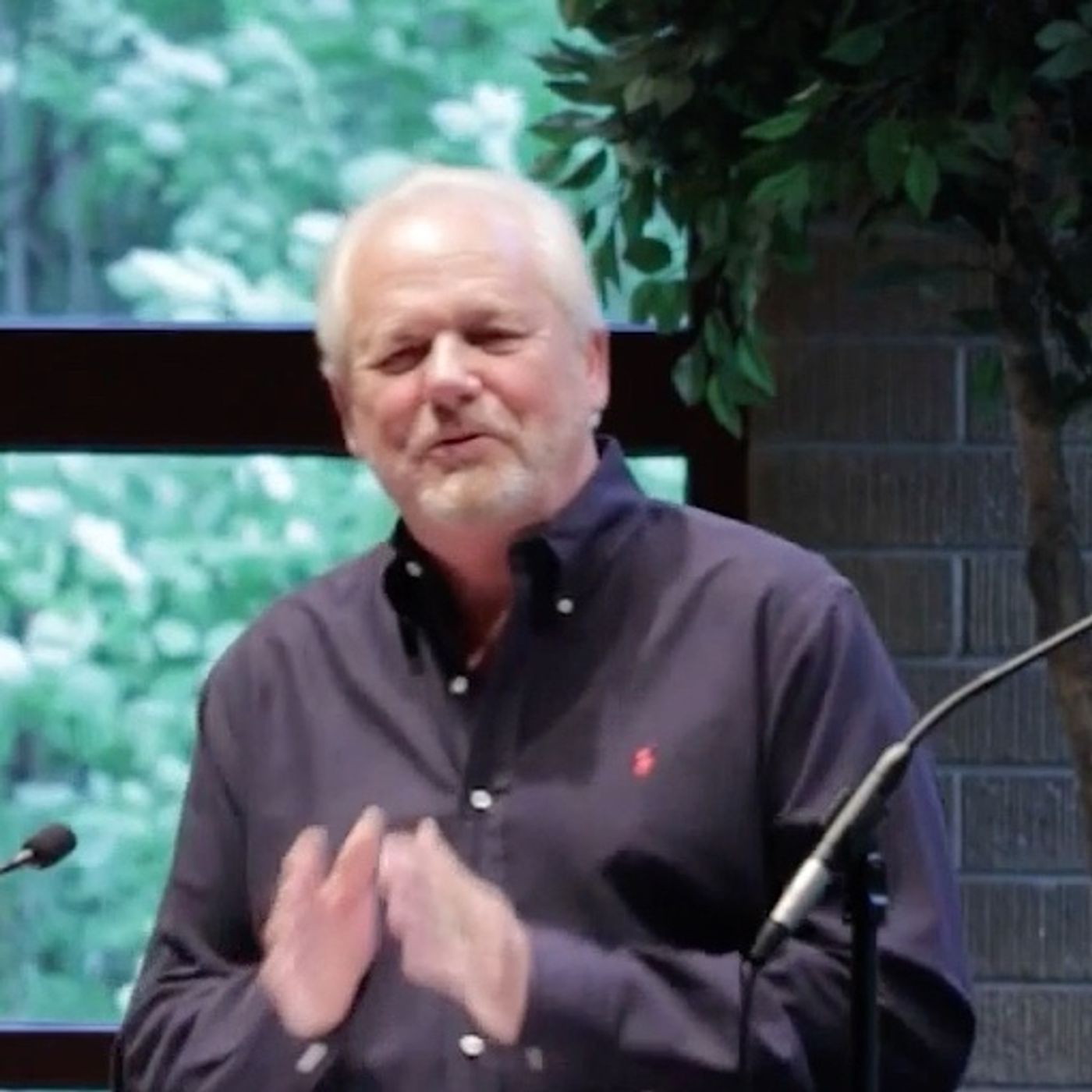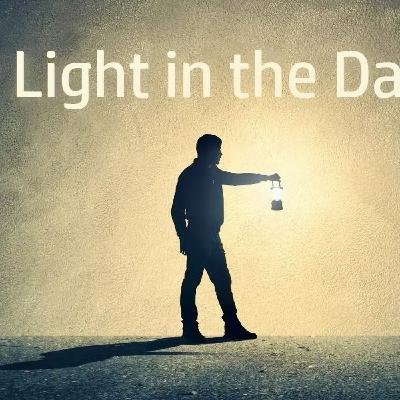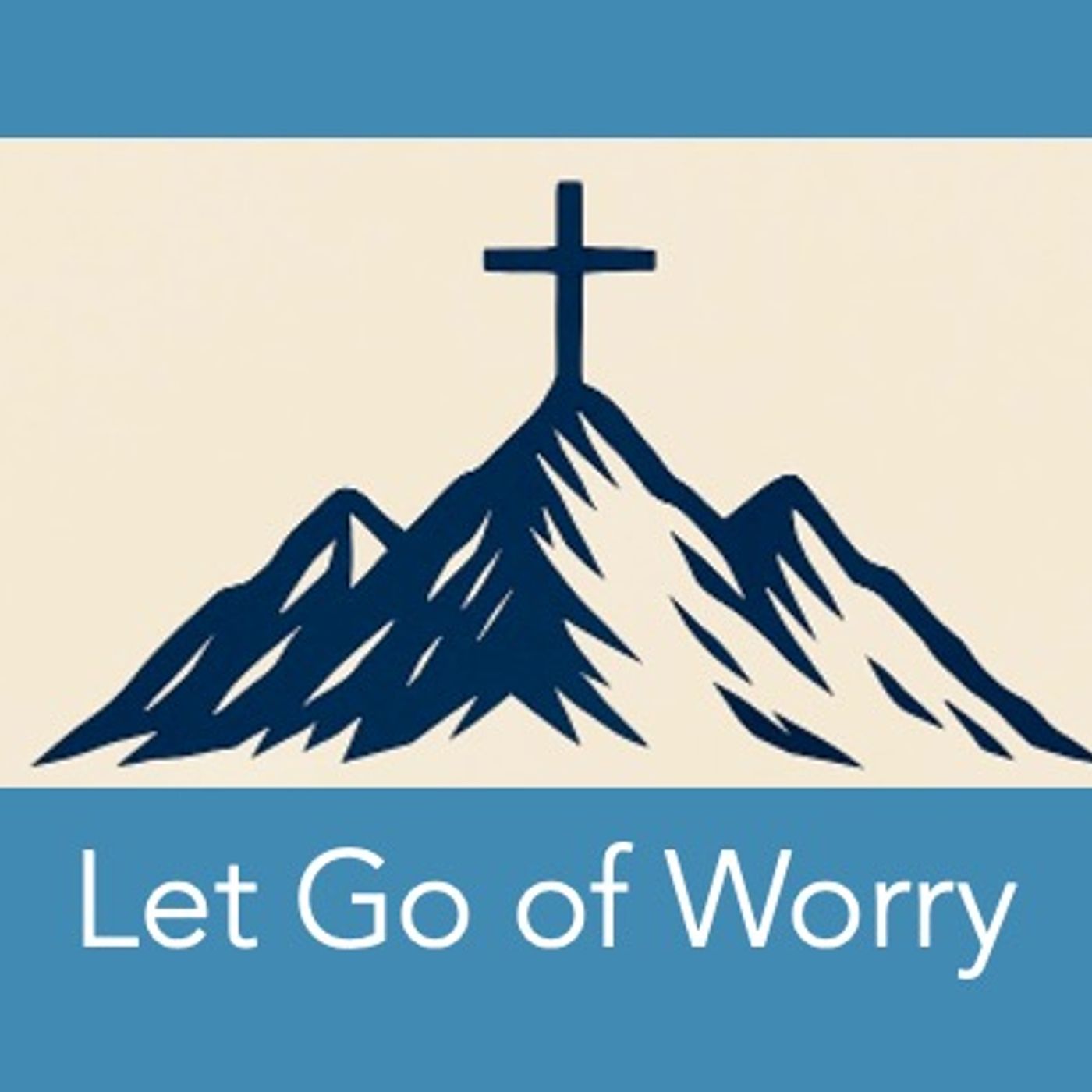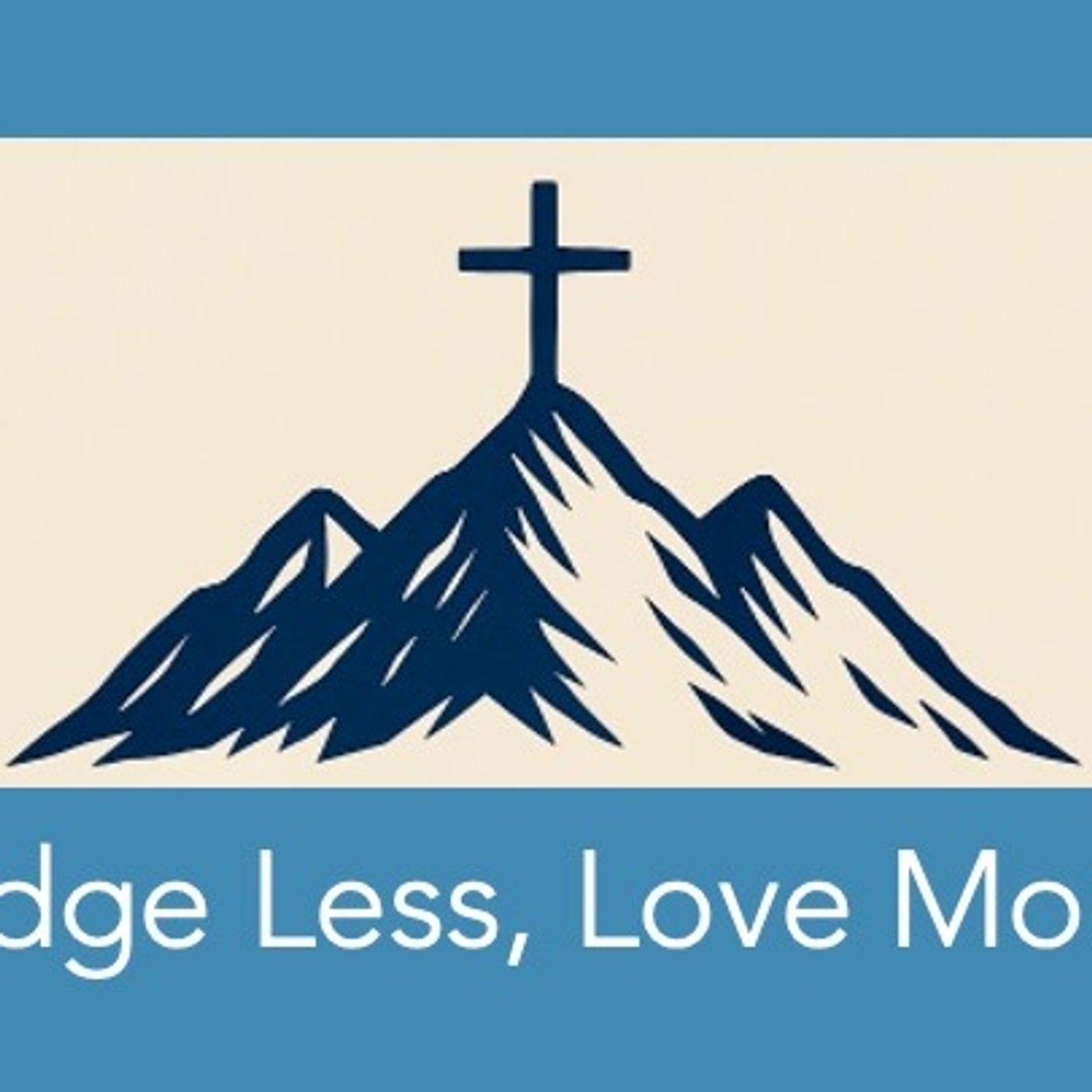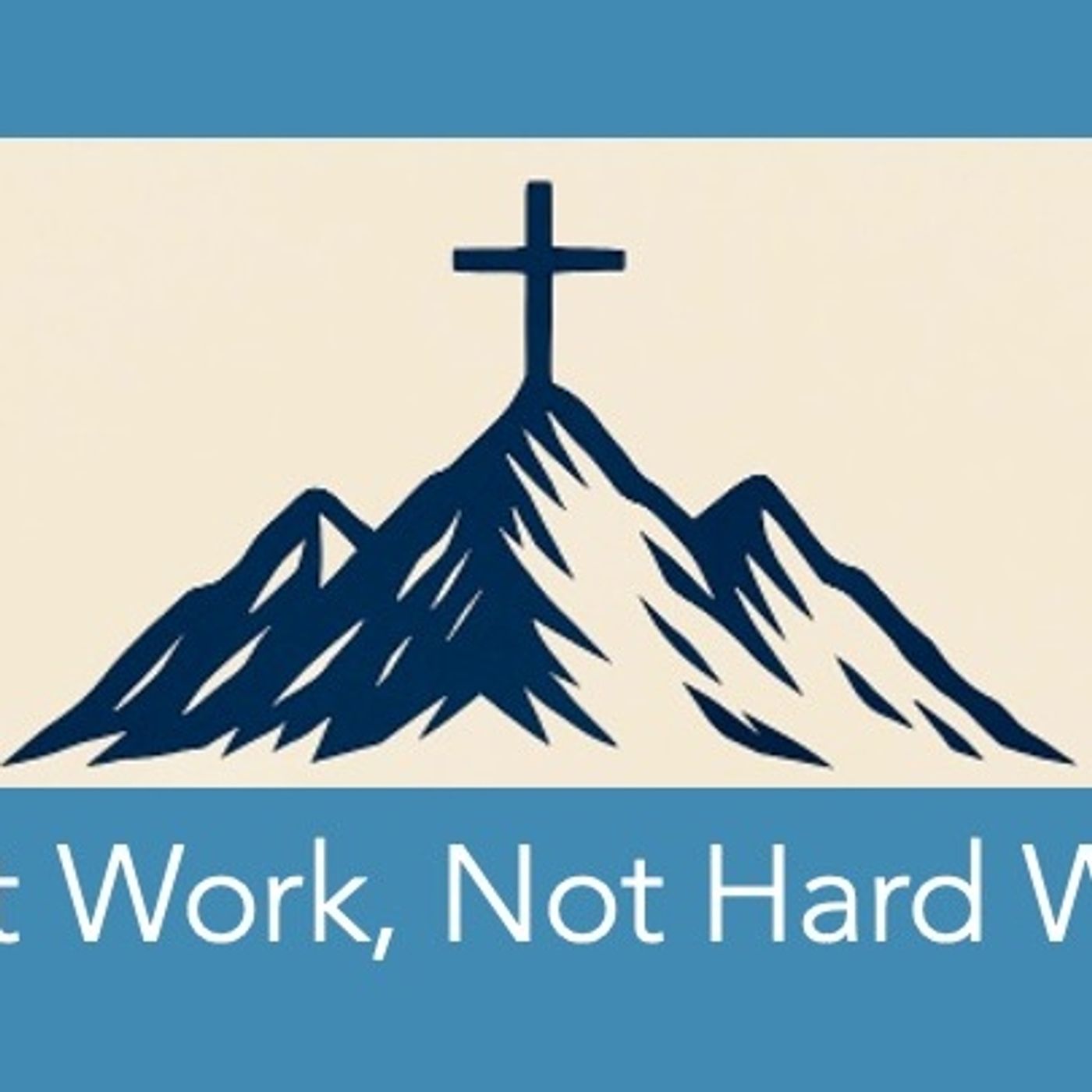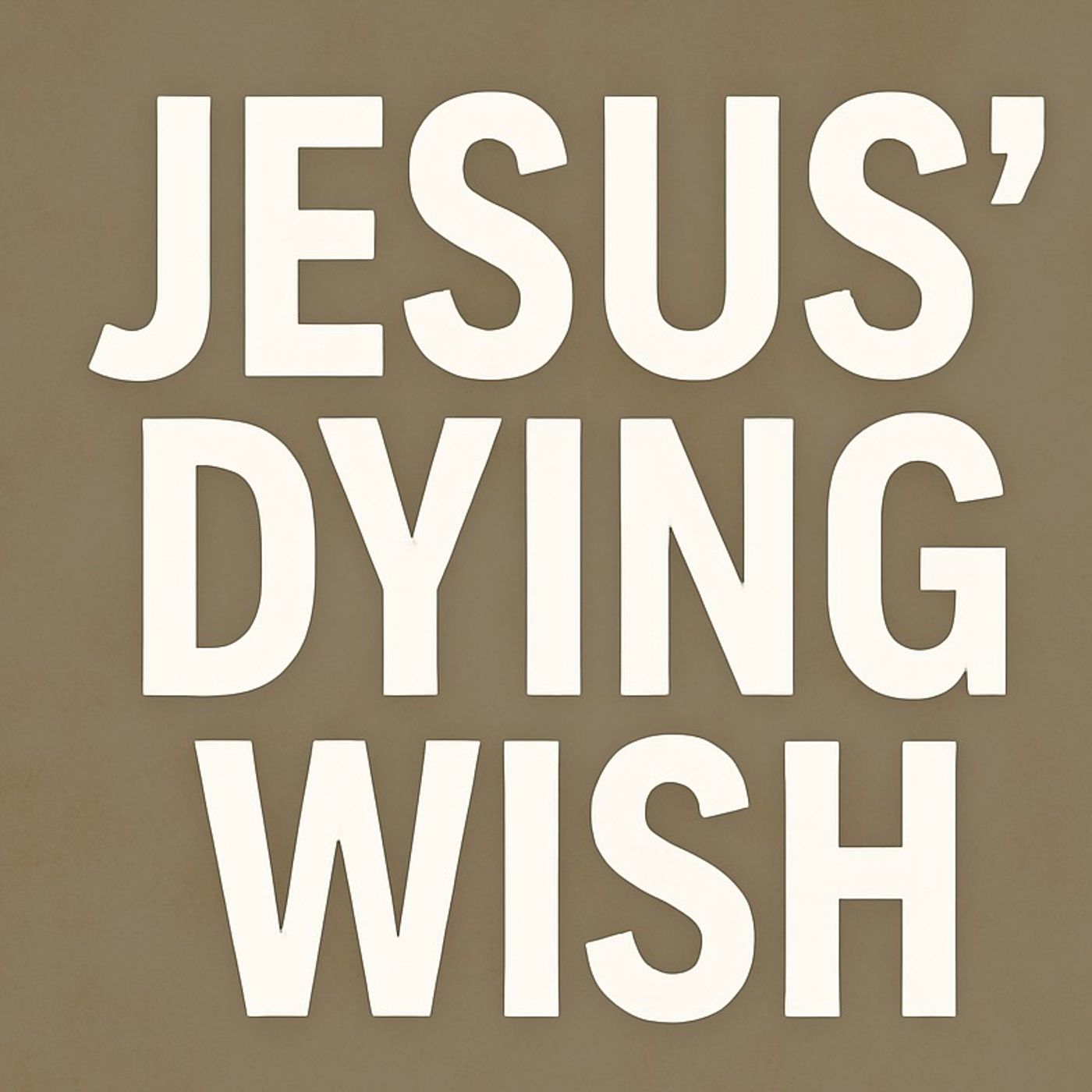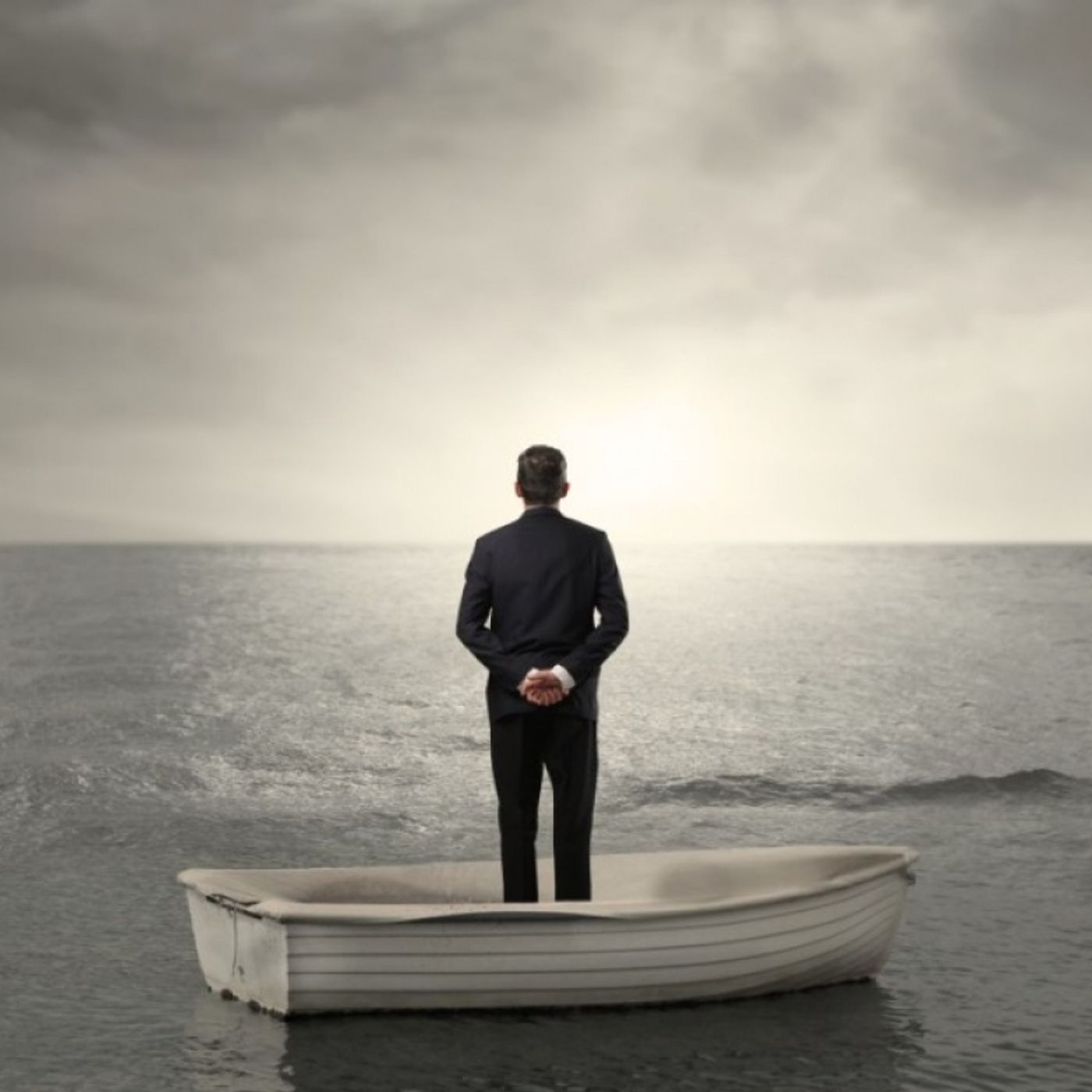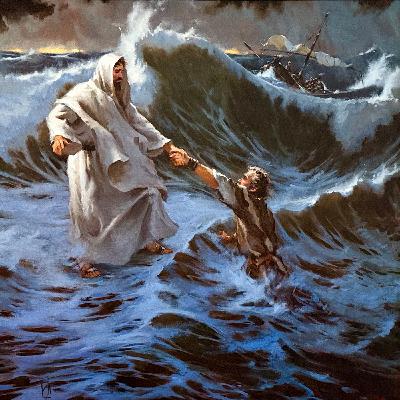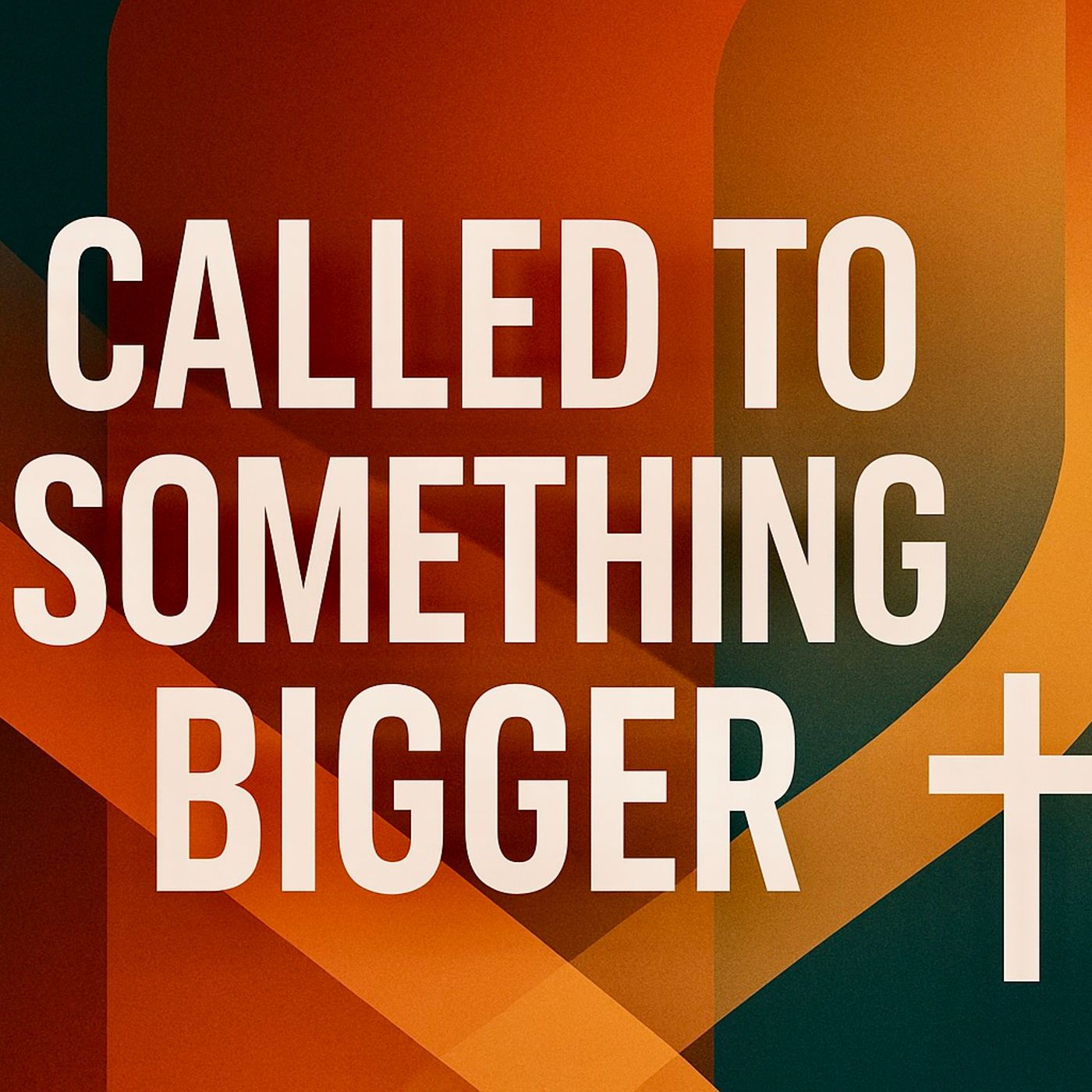Discover Pastor Lonnie
Pastor Lonnie

241 Episodes
Reverse
This message invites us to see stewardship in a different light, not just as a financial duty but as a spiritual opportunity. In Luke 12:15, we're reminded that life isn't about possessions but about purpose. The "dinosaur" symbolizes anything we cling to out of fear, pride, or the illusion of control, things we think we need to survive but that actually hold us back from living freely in God's purpose. Everything we have, our money, time, relationships, and abilities, is a gift from God, and we are called to steward it, not hoard it. This sermon challenges us to release what weighs us down and trust that God can do more with our surrender than we could ever do with our grip. It's not just about giving to a church; it's about becoming a church that reflects Jesus, boldly loving, freely giving, and fully trusting the One who gave everything for us.
Konstantin Efimov was born in 1958 in St. Petersburg, Russia, the elder (by 10 years) of two sons born to Igor Efimov, well-established movie actor, and his wife, Irina, whom he met while attending Moscow's prestigious Maly Theater School. Irina performed on stage until a few days before Kostia's birth. "That must be why I enjoy being on stage so much," says Kostia, who goes by his childhood nickname. His parents chose to live in St. Petersburg to be close to Igor's elderly mother. In 1961, they signed a five-year contract with the Theater Group of the Soviet Army Force, performing in East Berlin. KGB regulations, however, did not allow them to bring Kostia, then age 2-½ with them. He stayed, as an "insurance policy," with his grandmother, Valya, living in a communal apartment that housed nine families (33 people) in 11 rooms, all sharing the same hallway, kitchen and bathroom. "The bathtub was always filled with laundry," Kostia recalls. "We took our baths twice a week in the community bathhouse." As a child, Kostia displayed a tremendous interest in music, spending much time in front of the radio in his grandmother's tiny room. At age 4, a present was delivered to him from his parents -- a 1937 Wolkenhauer upright piano, upon which he soon learned to play hundreds of Russian folk songs. "It became the center of life in our home," Kostia remembers. "Even my pet rooster, Peter, used the lid as his favorite perch, and he would sit there and listen while I played." Kostia's parents returned from East Germany in July of 1965, when he was 7. His grandmother died of a stroke the following month. The same year, Kostia was accepted into a special music preparatory school of the Rimsky-Korsakov Conservatory. For the next 11 years, each day involved four to six hours of piano practice. At the school he met his first great influence, teacher Tamara Karetkina. "I was her first student," Kostia recalls. "She was a tremendous pianist and a beautiful woman, very much resembling Jacqueline Bisset.” Because of his talent, Kostia and other elite prodigies were forbidden to play sports, for fear of hand injuries. At 14, Kostia, who loved basketball, broke a finger in his right hand during a clandestine pick-up game. "I was so frightened," Kostia says. "The thought of not being able to play again was so horrifying! It was worse than death for me. I didn't tell my mother that I did it playing basketball; I told her I fell down carrying my briefcase." While his right hand healed, Kostia passed the time mastering pieces written by Ravel and Scriabin for left hand. Ravel's piece was composed in honor of a pianist who lost his right hand during World War I. At 18, Kostia entered the famed St. Petersburg Conservatory. Here he met and studied under Vladimir Nielsen, one of the last great masters of Russian Romanticism. He completed his Conservatory studies in 1982 with advanced graduate degrees in four disciplines: concert (solo) pianist, pianist for chamber ensemble, accompanist, and piano teacher. Following graduation, Kostia performed throughout Russia, Eastern Europe and Scandinavia as a soloist, with orchestras, with ethnic ensembles and his own jazz-fusion group. Typically, Conservatory graduates move into teaching. "I decided to go another way. I was already involved with jazz and pop performances, and I was pretty well known as an arranger, so I wanted to explore new music. Friends introduced me to Oscar Peterson, and modern jazz and progressive rock bands like Genesis, Yes and King Crimson. It was very different, extremely energetic, and absolutely spontaneous, like myself. I am definitely a free spirit, and playing this music allowed me a certain level of freedom that I wasn't able to explore in classical music." Kostia received a proposal from the St. Petersburg Cultural Center to start, essentially, an experimental music group. "This was 1982," he says, "and things were warming up a little bit." Kostia called the group “ARS” -- Latin for "art.” While working with ARS, Kostia started composing and arranging music for movies, documentaries and theatrical productions. He freelanced as an arranger, working on a number of soundtracks for the various stage productions. His skills as a performer led him to work with some of the well-established Russian composers (i.e., Alfred Schnitke, Vladislav Uspensky, Vladislav Panchenko), and a number of Soviet pop stars, including Marina Kapuro and Aleksander Rosenbaum, among others. During a visit to the United States in 1989 with the Soviet-American Cultural Exchange project "Clay Stomp," Kostia had an opportunity to perform for his first American audience at the Milwaukee Art Museum, where he shared the stage with Narada artist David Lanz. That day changed Kostia's life forever. The next morning he received a call from Narada records offering him a recording contract. From 1989 until 1997, Kostia worked extensively on various Narada projects as a performer, arranger and producer, including David Arkenstone's Grammy-nominated In the Wake of the Wind, and Narada's most celebrated recording, Nutcracker. Kostia's music appeared on more than a dozen of Narada's collections and compilation albums. In 1992, Kostia and David Arkenstone collaborated on the first album ever endorsed by the United States Olympic Committee, Spirit of Olympia. In 1994, Narada released Kostia's first piano solo album Suite St. Petersburg, which he describes as "a piano portrait of my beloved city." 1996 brought another critically acclaimed piano album, Ten Pebbles, where Kostia revisits some of his most cherished memories. Both albums won him respect and recognition of his fellow musicians and the love of fans around the world. Beginning in 1997, Kostia started a series of recordings with North Sound Music Group dedicated to piano idols of pop music. That year, he released Kostia's Interpretations of Billy Joel followed by Kostia's Interpretations of Elton John in 1998. The success of these projects led to a number of tribute recordings completed with world renowned instrumentalists such as Daryl Stuermer, guitarist from Genesis and Phil Collins Band; Paul McCandless, Windham Hill artist and reed and saxophone player from the band Oregon; and Windham Hill guitarist, Alex De Grassi. In 1999, Kostia composed the soundtrack for the motion picture Czar of Make Believe from Italian director Daniel Alegi, which won an award for Best Short Film at the Rhode Island International Film Festival. In 2001, Kostia released Piano Ocean, an album of original music recorded in collaboration with ex-Narada star Spencer Brewer. At the same time, he composed the soundtracks for a motion picture, The Play in the Modern Style, and a short film of Alex Boguslavsky entitled Blue Lamp. New Millennium also brought several other exciting projects to Kostia as well – a collaboration between LEGO and George Lucas Film, celebrated short animated film “Star Wars: “Revenge of the Brick.”; new Alex Boguslavsky’s film “My Little Philosopher”; a pilot for an independent motion picture “Slow Poison.”; a collaboration with legendary band Sweetbottom (original Indi fusion group) – “Sweetbottom Live”; several new albums with old band mate, Daryl Stuermer – “GO!”, “Rewired”, “Retrofit”; debut album of Carmen Nickerson “Tomorrow Is Another Day” etc. One of Kostia’s compositions made it to the world renown TV series “Sex and the City.” In addition to collaborations with well-established music groups and individual artists, Kostia has had his music performed by the Milwaukee Symphony Orchestra, Utah Symphony Orchestra, the internationally famed Veronica String Quartet, and Present Music cellist, Paul Gemainder, to name a few. Currently, Kostia is at work composing music for his next CD, performing solo piano concerts around the country, and recording and performing with the Daryl Stuermer Band. Future plans? "I am thinking about something I always wanted to do – a series of pieces for chorus, poem for string quartet, and six pictures for piano and orchestra," says Kostia. His journey continues. "Musical Columbus," as he is often called by journalists, is again on the way to discovering new worlds for himself and his fans. Kostia plays regularly at Fox River Congregational Church where he is a composer in residence.
This message challenges the idea that gratitude is only for good times and instead calls us to practice thankfulness even when life gets tough. Based on 1 Thessalonians 5:16–18, it clearly distinguishes between being thankful for all circumstances and being thankful in them. The message reminds us that although we can't always control what happens, we can choose our outlook. Gratitude becomes an act of trust, not just a feeling, and a decision that opens the door to peace and reshapes our pain. Whether life is smooth or messy, the sermon encourages us to thank God not out of convenience but out of faith, because even in chaos, God remains good and active.
Life can crash unexpectedly—plans fall apart, emotions spiral, and nothing seems to go right. But faith isn’t built in comfort; it’s shaped in chaos. In this message by Pastor Lonnie, we’re reminded that God uses life’s messes to strengthen our faith. True joy isn’t pretending everything’s fine; it’s trusting that God is still at work, even in the broken pieces. With practical steps and real-life applications, this message shows how to pause instead of panic, find purpose under pressure, and see every trial as training for stronger faith.
The tragic death of Charlie Kirk has left many grieving, fearful, and overwhelmed. In his message, Pastor Lonnie urges the church to face this pain honestly while grounding our response in the gospel. In a world quick to speak and quick to divide, we are called to slow down, listen carefully, and use our words to heal rather than harm. While grief is heavy and real, hope in God is greater because one day every broken thing will be restored. Until then, we pray, allow ourselves to grieve, resist hatred and despair, and live as lights shining in the darkness because Christ is greater than the darkness.
In Built to Last: Storm-Proof Faith, Pastor Lonnie draws from Matthew 7:24-29 to show that resilience and the ability to withstand life’s storms come not from intentions or appearances, but from obedience to Jesus Christ. Like the wise and foolish builders who faced the same storm, our lives stand or fall depending on where we build: on the solid rock or shifting sand. Storms are inevitable, but they don’t have to be destructive. When our foundation is in Christ, we can endure with strength, recover with hope, and live with lasting faith that no trial can destroy.
Pastor Lonnie's message addresses the common struggle with worry through Jesus’ teaching in Matthew 6:19–34. The sermon explains that worry stems from uncertainty—we only stress over what we don’t know. If we knew what the future held or trusted in God’s provision and outcomes, we wouldn’t worry. Jesus offers a way to overcome this anxiety by realigning our hearts and minds with God’s promises in the Bible. The message highlights three steps to move past worry and emphasizes that worry is not just an emotional issue but a spiritual one. When we feel anxious, we should check if our priorities are right, if we trust God, and if we are living in the present. Jesus’ message is clear: seek first the Kingdom of God, and everything else will fall into place.
In this message, Pastor Lonnie emphasizes how Jesus encourages us to redefine what spiritual authenticity means. While He calls us to let our light shine publicly through acts of service (Matthew 5), He also teaches that personal spiritual practices—such as giving, praying, and fasting—are most effective when done privately, away from the spotlight (Matthew 6). The message makes it clear: public good involves reflecting God to others, but private devotion is about a genuine connection with God, not impressing people. Giving should be generous yet discreet. Prayer should be sincere, not performative. Fasting should be humble, not theatrical. Ultimately, Jesus reminds us that we don’t need an audience to be seen—God already sees, and He rewards what’s done in secret.
Pastor Lonnie's message reminds us that while it’s easy to notice flaws in others, Jesus calls us to approach people with humility and grace. His command in Matthew 7:1 isn’t about ignoring wrongdoing; it’s about avoiding judgment that isn’t ours to make. Before we try to fix someone else, we must first address our own faults, live with integrity, and lead by example. When we speak into someone’s life, it should be an act of loving intervention, not meddling interference, always leaving the final judgment to God.
This message by Pastor Lonnie challenges the idea that spiritual life is about simply following rules or performing religious duties. Jesus calls us to a righteousness that goes beyond outward appearances by not just doing more, but by transforming from within. He shifts the focus from external actions to internal attitudes, showing that contempt, anger, and arrogance are just as serious as murder in God’s eyes. A healthy spirituality isn’t about keeping score; it’s about nurturing a heart that reflects God’s love. Jesus doesn’t just want better behavior; He wants hearts that have truly changed. Reconciliation is more important than religious rituals, and being at peace with others proves that our relationship with God is genuine.
This message by Pastor Lonnie explains Jesus’ call for his followers to be the salt of the earth and light of the world. It encourages us to live out our faith beyond the church walls—intentionally, relationally, and authentically. Salt represents our influence, adding value and preserving goodness in the world, but only when it leaves the shaker. Light symbolizes hope and truth, breaking through darkness to guide us on our path. Using humor, real-life stories, and examples like those in Grace on Wings, the message inspires us to utilize our gifts, love across differences, and reflect Jesus in everyday life—not with loud religion, but with a quiet, powerful presence.
Pastor Lonnie's message introduces a series on the Sermon on the Mount, emphasizing that Jesus’ main message is about spiritual transformation rather than just religious deeds. It urges us to move beyond feelings of defeat and despair into a life filled with spiritual abundance, joy, and purpose. Focusing on Matthew 5:1-12, it explains the Beatitudes and illustrates how happiness often arises from unexpected qualities: humility, mourning, meekness, a hunger for righteousness, mercy, purity, peacemaking, and enduring persecution. These traits, although often conflicting with cultural norms, reveal a deeper joy and meaning.
This message by Pastor Lonnie unpacks the often-overlooked “other prayer” of Jesus—the one He prayed the night before His crucifixion, found in John 17. Unlike the familiar Lord’s Prayer, this one is deeply personal and revealing. Jesus isn’t asking for safety or success for His followers—He’s asking for unity. Real, sacrificial, love-driven unity. The message challenges us to see that unity isn’t about agreeing on everything, but about being united in Christ. It’s not something we build, but something we protect. And when we live that out, the world sees who Jesus really is. Through humor, relatable stories, and honest reflection, this message invites us to live out the kind of love that makes the gospel believable.
This message reflects on America’s journey as a free nation, emphasizing how young the country still is in the scope of world history. The message illustrates how freedom is a fragile, hard-earned gift that is passed down through just a few lifetimes. Drawing from the words of John Adams and the sacrifices of the signers of the Declaration of Independence, the message underscores that political freedom has always come at a steep price—suffering, loss, and unwavering resolve. It then shifts to a deeper, spiritual freedom—offered not through war, but through Jesus. Citing John 8:31-32, it reframes freedom not as personal license but as the result of discipline, truth, and obedience to God’s Word. Real freedom is found not in doing whatever we want, but in becoming who we were meant to be, grounded in truth and love. True freedom—national or spiritual—is never free. It demands sacrifice, discipline, truth, and above all, love.
This Father’s Day message speaks to all parents, grandparents, and influencers of the next generation—not just fathers, but anyone shaping young lives. The core idea is that simple, heartfelt words, accompanied by action, hold the power to form a child’s identity and shape their soul for life. The message centers around four life-giving phrases that every child or person needs to hear consistently. These words are not merely one-time statements but ongoing seeds that develop into a person’s inner voice. The message challenges us to reflect on how we use our words and encourages us to communicate with intention, grace, and faith, regardless of age.
This message from Pastor Lonnie challenges us to trade safety for faith. Using vivid personal stories and Matthew 14:22-33, it illustrates that transformative faith requires risk, just like Peter stepping out of the boat into a raging storm to walk toward Jesus. While Peter sank, he at least tried—unlike the others who stayed safe but missed the miracle. The core message is that comfort zones may feel secure, but they stunt spiritual growth. Jesus is still calling us to “Come,” to step out even if we might fall—because He’ll always catch us. Faith doesn’t grow in the boat; it grows on the water, and if you want to walk on water, you have to get out of the boat.
In this personal reflection, Pastor Lonnie sets aside a preplanned sermon to share a pivotal turning point in his spiritual journey—the moment he chose to leave behind comfort and control to follow a risky but divine calling. Sparked by an unexpected invitation to plant a church and solidified during a powerful sermon in San Diego about the story of Peter walking on water, he felt a deep, inner shift. The message—“If you want to walk on water, you have to get out of the boat”—became a defining call to faith and action.The story explores his fear, uncertainty, and vulnerability, while also highlighting his determination to step out in faith with his wife, Mercedes. It’s more than just a personal testimony; it’s a challenge for others to confront their comfort zones and have enough trust in God to take genuine risks. Through raw honesty, the author urges readers to stop spectating and start walking—because true faith begins when you leave the safety of the boat.
This message by Pastor Lonnie invites us to see our lives as more than a series of tasks or routines—we are chosen, sent, and deeply loved by God for a greater purpose. We are called to live with intention, courage, and compassion through everyday moments and ordinary places. Drawing inspiration from saints past and present, we’re challenged to live our lives with meaning and mission. It’s a call to reflect, respond, and remember that where we are is where God can work through us. In a world that often forgets what matters, we are reminded your life is not random—it’s on purpose.
This message by Pastor Lonnie challenges us to embody the life and love of Jesus in practical, tangible ways. Using the imagery of Jesus’ feet, hands, mouth, and spine, it highlights how He walked toward the outcast, touched the untouchable, spoke words of peace, and stood with unwavering persistence. The message calls modern-day Christ-followers to live out their faith by going where grace is needed most, serving others with compassion, speaking life, and remaining steadfast in a world that often resists true love. It’s an invitation to not just believe in Jesus, but to move like Him.



